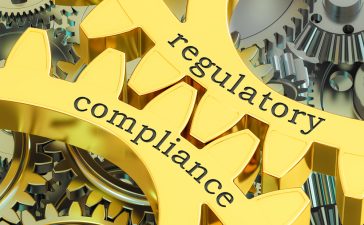Employment law governs the relationship between employers and employees, establishing the rights, responsibilities, and obligations of both parties in the workplace. Whether you’re an employer navigating the complexities of labor laws or an employee seeking to understand your rights, employment law plays a crucial role in shaping the workplace environment. While many are familiar with basic concepts such as wage laws, workplace discrimination, and benefits, there are deeper nuances and emerging trends in employment law that often go unnoticed. In this article, we will uncover insights from legal experts, shedding light on aspects of employment law that you may not know, yet are critical to fostering a fair, equitable, and efficient work environment.
1. The Complexity of Employee Classification
One of the most common areas where employers and employees alike are often confused is the classification of workers as independent contractors or employees. According to employment law experts, misclassification is more common than many realize—and it can have severe legal implications. For employers, misclassifying an employee as an independent contractor can result in hefty fines and back payments for taxes, overtime, and benefits.
Legal professionals like attorney Julie Adams emphasize that the distinction between an independent contractor and an employee is not just a technicality but a significant legal issue. Independent contractors typically do not receive the same benefits as employees, such as paid leave, health insurance, and retirement plans, and are responsible for their own taxes. However, the IRS and other regulatory bodies are increasingly scrutinizing these classifications, looking at factors like the degree of control an employer has over the worker and whether the worker’s tasks are integral to the employer’s business.
Understanding these distinctions is crucial for both employers and employees, as misclassifying someone could lead to legal challenges, including lawsuits for unpaid wages or benefits. In recent years, the gig economy has raised many questions around worker classification, with some states, like California, passing stricter laws that reclassify many gig workers as employees, thus affording them more protection.
2. The Growing Importance of Mental Health in the Workplace
While physical health and safety have long been a priority in employment law, experts are increasingly emphasizing the significance of mental health in the workplace. Legal scholars and workplace experts argue that mental health should be treated with the same level of seriousness as physical health, yet the laws governing mental health issues are often underutilized or overlooked.
Employment attorney Sarah Johnson highlights the growing recognition that mental health issues, such as stress, anxiety, and depression, can significantly affect an employee’s ability to perform their job effectively. In many jurisdictions, employers are now required to accommodate employees with mental health conditions in the same way they would accommodate physical disabilities, under laws such as the Americans with Disabilities Act (ADA) in the United States. This can include adjustments like flexible working hours, remote work options, or creating a less stressful work environment.
However, Johnson points out that while mental health protections exist, many employees are reluctant to disclose mental health issues to their employers for fear of stigma or discrimination. This is where employment law can play an essential role in shaping workplace culture. As more businesses and legal frameworks push for inclusivity, experts suggest that employers should prioritize training and awareness programs to help foster an environment where employees feel comfortable discussing mental health issues without fear of reprisal or bias.
3. The Shift Toward Pay Equity
The concept of pay equity has gained significant traction in recent years, especially regarding gender and racial disparities in compensation. Experts in employment law, such as attorney Rachel Simmons, argue that there has been a noticeable shift toward greater transparency and accountability around pay. The conversation about pay equity has moved beyond wage gaps between men and women to include concerns about racial pay disparities and equal pay for equal work across all demographics.
Simmons points out that while pay equity laws exist in many countries, enforcement can be lacking. The push for pay transparency is becoming a key focus in employment law, with more companies being encouraged, or even required, to disclose pay ranges for job positions and report on pay disparities between employees. For example, the United Kingdom’s gender pay gap reporting law mandates companies with over 250 employees to publish annual reports on the gender pay gap within their organizations. Similarly, in the United States, several states and localities have enacted laws that prohibit employers from asking about an applicant’s previous salary history, thus aiming to reduce the perpetuation of wage gaps.
Experts suggest that greater transparency not only leads to fairer compensation practices but also helps to build trust between employers and employees. In addition, pay equity audits are becoming a best practice for many organizations, ensuring that compensation systems are fair, non-discriminatory, and aligned with the principles of equal pay for equal work.
4. The Expansion of Family Leave Policies
Family leave policies are another area where employment law has evolved significantly in recent years. While many people are familiar with the concept of maternity leave, experts argue that parental leave policies, in general, have not kept pace with the changing dynamics of modern families. According to labor law expert David Greenfield, there is a growing call for more inclusive, flexible, and comprehensive family leave policies that accommodate a variety of family structures, including same-sex couples, adoptive parents, and those who need to care for ill family members.
While the Family and Medical Leave Act (FMLA) in the United States guarantees up to 12 weeks of unpaid leave for certain family and medical reasons, many experts believe that this law is outdated and doesn’t adequately support workers in today’s world. For example, some European countries, such as Sweden and Norway, offer more extensive parental leave benefits, including paid leave for both mothers and fathers.
In addition, experts are noting that paid family leave is gaining traction in the U.S., with several states—such as California, New Jersey, and New York—introducing paid family leave programs that provide workers with income while they take time off to care for family members. As employees increasingly demand better work-life balance, experts predict that family leave policies will continue to evolve, with more employers offering paid leave options as a competitive advantage in attracting and retaining talent.
5. The Impact of Remote Work on Employment Law
The global pandemic has brought remote work to the forefront of employment law discussions. Experts agree that remote work is likely to remain a significant aspect of many industries even as the pandemic subsides. However, this shift has raised several legal questions regarding workers’ rights, workplace safety, and employment classifications.
Employment lawyer Emily Roberts notes that employers must now address issues related to remote work in their contracts and policies, such as setting clear expectations regarding working hours, access to benefits, and maintaining productivity. Additionally, questions surrounding remote workers’ legal status—such as whether they are eligible for certain benefits and protections, including workers’ compensation for injuries sustained while working from home—are still evolving.
As remote work becomes a permanent fixture in many organizations, experts suggest that employment laws will need to adapt to address new challenges. This includes ensuring that remote workers have access to the same legal protections and benefits as their in-office counterparts, and that employers are equipped to manage remote work policies in compliance with existing labor laws.
Conclusion
Employment law is an ever-evolving field, shaped by social, economic, and technological changes. While many are familiar with fundamental aspects of employment law, there are numerous nuances and emerging trends that can have a profound impact on both employers and employees. From the complexities of worker classification to the growing importance of mental health, pay equity, and family leave, experts are offering insights that encourage businesses to adapt to the changing landscape of the workforce. Understanding these lesser-known aspects of employment law is crucial for ensuring fair, equitable, and sustainable practices that foster growth, productivity, and mutual respect in the workplace.





